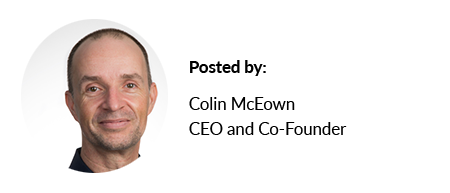One of the most common problems we see when speaking to organisations who are considering implementing a Stakeholder Management system is distributed data.
Stakeholder engagement is a complex process and isn’t the exclusive realm of the communications professional. Engagement occurs whenever a member of your team has contact with someone who has an interest in your organisation’s activities.
These points of contact can range from members of your engagement team to your media team, your government relations team, your field workers, your call centre, your contractors, your board of directors and the list goes on.
Because of these distributed points of contact with stakeholders, information about this contact is typically distributed as well. Some team members may keep spreadsheets of stakeholders relevant to their own activities, others might record everything in email, task management systems, notes or just keep it all ‘upstairs’.
While these are all rational responses to the need to record this vital information, and certainly better than not recording it at all, the distribution of data has inherent problems:
- Stakeholder History: The first and perhaps the most subtle problem is that it’s likely that many stakeholders will have contact with more than one member of your team. If you go into a meeting with a stakeholder without knowing what’s been said by whom, this can put you at a disadvantage and, more critically, give stakeholders the impression that the left hand doesn’t know what the right hand is doing.
- Consistency of Messaging: Closely related to the Stakeholder History problem is one of message consistency. If there is no central repository of the messages your organisation is delivering to stakeholders, it becomes very easy to wrong-foot yourself or contradict previous messages.
- Comprehensive Reporting: When a minister or manager needs to know everything about a particular issue or group of stakeholders and needs to know it now, distributed data systems don’t do a lot to alleviate stress.
The Solution? Keep it all in one place
It’s a disarmingly simple solution, but time and time again we find that the greatest value we add to organisations is consolidating all of their stakeholder communication into a single repository.
By doing this, we empower organisations to:
- Securely share critical information in real-time, in the office and in the field
- Create comprehensive histories of your organisation’s interactions with each of its stakeholders
- Ensure that organisational messaging is consistent
- Report on any issue or stakeholder group in an instant.
Of course, there is much more to Consultation Manager than that but, from a value point of view, helping organisations create a single source of truth consistently tops the list of the benefits we can provide.

Colin McEown, CEO
Learn how organisations in your industry manage their stakeholder and community engagement data. Download the free information sheet for your industry.
RELATED READING
Notes from the CEO: Data Security, Sovereignty, our commitment to you
Notes from the CEO: Information Silos and the Key Person Problem
7 Benefits (and some Common Pitfalls) of Stakeholder Databases
DIY or Buy? How to Choose a Stakeholder Management System


